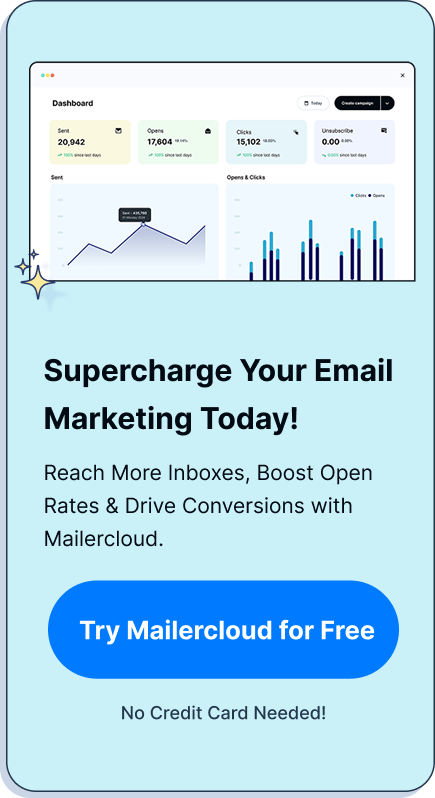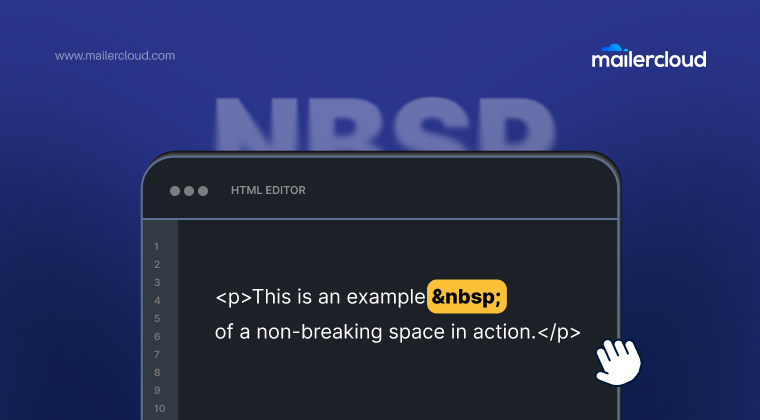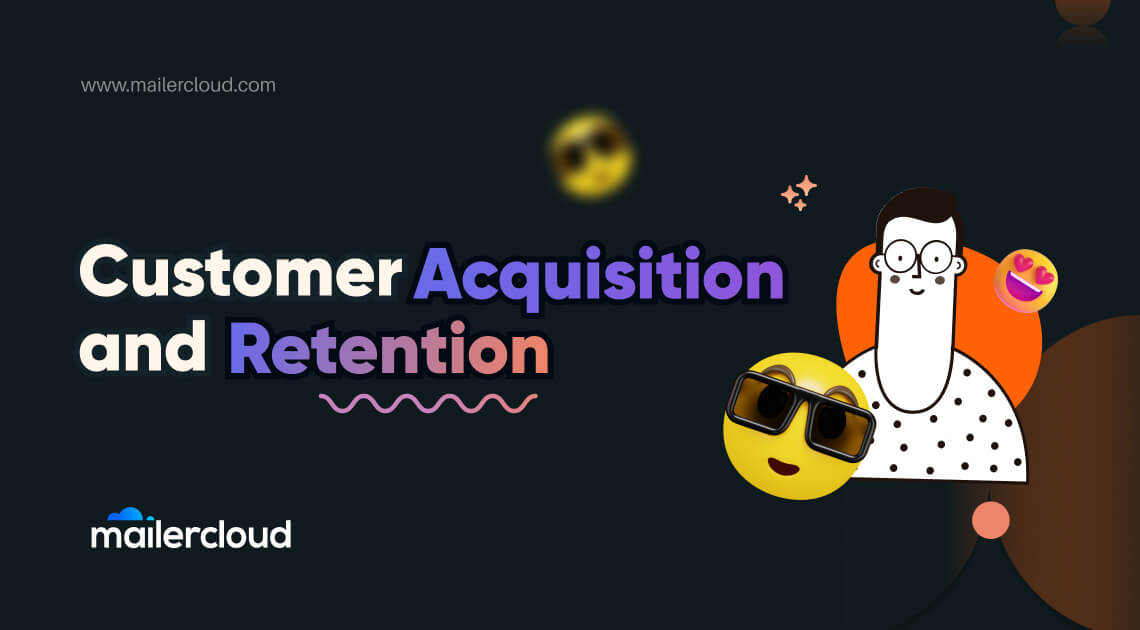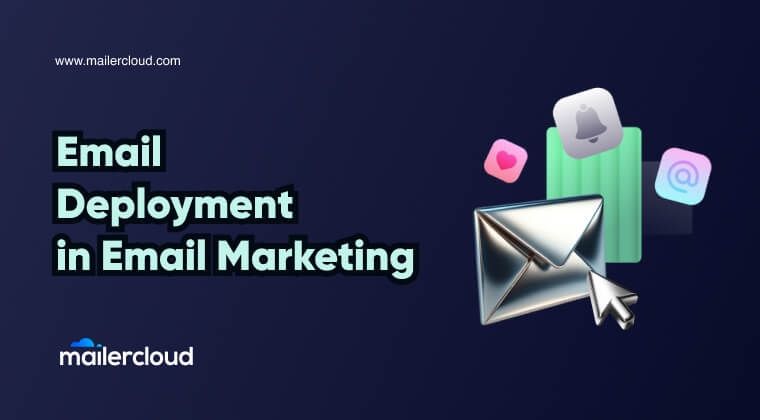When choosing the best email service provider for your business or personal use, the options can feel endless. Some offer robust integrations; others stand out with tight privacy features or generous free plans. But the key is choosing one that fits your unique needs.
At Mailercloud, we’ve helped thousands of global businesses—from early-stage startups to established enterprises—send millions of emails daily. Our experience in email marketing, deliverability, and sender reputation management gives us a strong perspective on what makes a great email provider.
So, to help you cut through the noise, we’ve compiled this detailed guide comparing the best free and paid email service providers. From Gmail and Outlook to privacy-first options like ProtonMail, this list includes everything you need to evaluate performance, security, integration, support, and pricing.
Whether you’re starting a new business, upgrading your tech stack, or simply want better inbox control, this guide will help you find your ideal match.
If your focus is large-scale campaigns and deliverability, choosing a dedicated bulk email sender can be more effective than general email tools.
Table of Contents
Detailed Comparison of Top Email Providers
Email providers evaluate your domain’s reputation, authentication, and sending behavior to decide whether emails reach the inbox or spam folder. Understanding what an email domain is helps businesses identify and fix deliverability issues early.
1. Gmail

Gmail continues to lead the email service market in 2026, powering more than 1.8 billion active users worldwide. Its sleek interface, reliable uptime, and powerful AI-backed features make it a top choice for both individuals and enterprises.
Gmail offers 15 GB of free cloud storage, shared across Gmail, Google Drive, and Google Photos. Users can access Gmail on web and mobile apps with seamless sync, while advanced search and sorting make inbox management effortless.
The real strength of Gmail lies in its integration with the Google ecosystem—Drive, Calendar, Meet, Docs, and more. Features like Smart Compose, Priority Inbox, and confidential mode make communication efficient and secure. Gmail also offers 2-step verification and spam/phishing protection powered by Google AI.
✅ Ideal For:
- Individuals seeking a dependable personal email
- Professionals who use Google Workspace tools
- Small to large teams needing collaborative features
- Educational institutions (via Google Workspace for Education)
💸 Pricing:
- Free Plan: 15 GB shared storage (Gmail + Drive + Photos)
- Google Workspace (Business Email Plans):
- Business Starter – $6/user/month
- Business Standard – $12/user/month
- Business Plus – $18/user/month
- Enterprise – Custom pricing
⭐ Key Features:
- Smart Compose & email scheduling
- Built-in chat and Google Meet access
- Labels and filters for advanced organization
- Supports IMAP/POP/SMTP protocols
- Built-in offline access
- Powerful mobile apps
✅ Pros:
- Excellent spam detection and security
- Unified inbox for multiple Google services
- Easy integration with third-party tools
- Reliable uptime and fast delivery
- Custom domain support for business emails
⚠️ Cons:
- Ads visible in free accounts
- Storage is shared across Google services (can fill up quickly)
- Less suitable for users with privacy-first concerns (data policies)
2. Yahoo Mail

Yahoo Mail is a veteran in the email space and still a reliable choice in 2026, especially for users needing huge storage space. It offers a whopping 1 TB of free storage, a clean and intuitive interface, and added features like customizable inbox themes and built-in widgets for news, weather, and more.
Though it’s primarily used for personal communication, Yahoo has refined its platform over the years with improved spam protection and account security.
✅ Ideal For:
- Casual users with lots of email/media files
- Individuals who like a visually rich email interface
- Users needing long-term storage for personal messages
💸 Pricing:
- Free Plan: 1 TB storage (ad-supported)
- Yahoo Mail Plus: $5/month (ad-free experience, added customer support)
⭐ Key Features:
- 1 TB free storage
- Filters, folders, and inbox themes
- Smart views and priority inbox
- Built-in tools: Notepad, Calendar, News widget
✅ Pros:
- Generous storage space
- Custom themes and interface
- Integrated content for casual browsing
⚠️ Cons:
- Ads in the free version
- History of past data breaches
3. Outlook
Microsoft Outlook, formerly known as Hotmail, remains one of the most powerful and business-ready email platforms in 2026. Now seamlessly integrated into the Microsoft 365 suite, Outlook offers a focused inbox, smart calendar, built-in task manager, and native support for Microsoft Teams and OneDrive.
Whether you’re managing business communications or personal emails, Outlook delivers a familiar and efficient experience—especially for those already using tools like Word, Excel, PowerPoint, and Teams. Its clutter-free Focused Inbox and advanced organizational rules allow users to easily categorize and prioritize emails.
Outlook supports cross-device sync, offline access, and shared mailboxes—making it an ideal solution for teams. Its enterprise-grade encryption and spam filters also provide top-tier email security.
✅ Ideal For:
- Professionals and teams using Microsoft Office
- Enterprises relying on Microsoft 365 ecosystem
- Freelancers or remote workers seeking productivity tools
- Educational and governmental institutions
💸 Pricing:
- Free Plan: Personal use with 15 GB mailbox
- Microsoft 365 Business Plans:
- Business Basic – $6/user/month
- Business Standard – $12.50/user/month
- Business Premium – $22/user/month
- Includes 50 GB mailbox + access to apps like Teams, Excel, and OneDrive
⭐ Key Features:
- Focused Inbox & sweep rules
- Built-in Calendar, To-Do, and Contacts
- Smart file attachments from OneDrive
- Email categorization, flags, and reminders
- Shared inbox and delegate access for teams
- Advanced spam/phishing protection with Microsoft Defender
✅ Pros:
- Seamless integration with Microsoft apps
- Great for corporate collaboration
- Shared calendars and team scheduling tools
- Enterprise-grade security and uptime
⚠️ Cons:
- Heavier interface compared to minimalist providers
- Steeper learning curve for beginners
4. ProtonMail
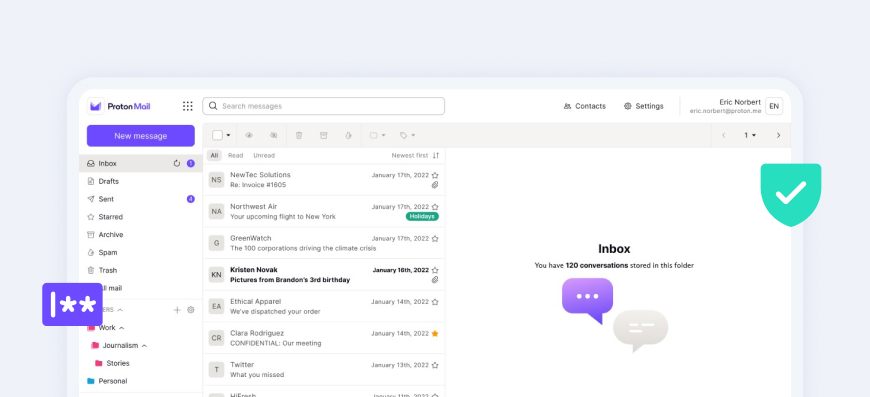
ProtonMail is the gold standard for secure email communication. Based in Switzerland, it offers end-to-end encryption, zero data tracking, and open-source transparency. Users can sign up anonymously, and ProtonMail never logs IPs or sells data.
It’s ideal for journalists, privacy-conscious users, and businesses that prioritize secure communication.
✅ Ideal For:
- Privacy-focused individuals and businesses
- Journalists, activists, or legal professionals
- Users wanting encrypted communication without tracking
💸 Pricing:
- Free Plan: 500 MB storage
- Paid Plans:
- Mail Plus – $3.99/month
- Proton Unlimited – $9.99/month (15 GB+ storage)
- Custom domain support in paid tiers
⭐ Key Features:
- End-to-end encryption
- Encrypted contacts and calendar
- Open-source with zero access to data
- Self-destructing messages
- Available via apps and web
✅ Pros:
- Complete anonymity
- Data stored under Swiss privacy laws
- Ad-free, open-source transparency
⚠️ Cons:
- Limited storage in free plan
- No inbox customization or folder styles
5. Neo

Neo is built for entrepreneurs, freelancers, and growing businesses that want more than just email, combining professional communication with website builder software featured in Spotsaas to launch a full brand presence in minutes. With Neo, you get a professional business email, a free custom domain, and even a free AI-powered website to launch your brand instantly—all in one package.
Neo’s simple interface, modern tools, and built-in growth features like email tracking and AI writing assistance make it a strong choice for businesses that want to look professional from day one without piecing together multiple services.
Unlike traditional providers, Neo combines communication, branding, and growth in one suite—making it ideal for startups and small businesses who value simplicity and speed.
✅ Ideal For:
- Freelancers and entrepreneurs launching their brand
- Small businesses looking for a professional email + website combo
- Growing teams that need business tools beyond email
- Users seeking an affordable Google Workspace alternative or Outlook
💸 Pricing:
- Starter – $1.99/month, including a free trial for a yearly plan
- Standard – $3.99/month, including a free trial for a yearly plan
- Max – $7.99/month, including a free trial for a yearly plan
- All plans include a free domain & free AI site
⭐ Key Features:
- Free custom domain included
- AI-powered website builder (ready in minutes)
- Smart Inbox with read receipts and email templates
- AI Email Writer to draft replies faster
- Calendar sharing and appointment booking
- Works on web + mobile apps
- Custom domain email hosting
✅ Pros:
- Domain and website bundled at no extra cost
- Designed for small businesses (growth-focused features)
- Easy setup—get started in minutes
- Affordable compared to other business email providers
- Built-in tracking and AI tools to boost productivity
⚠️ Cons:
- Focused more on small businesses than large enterprises
- Limited storage on entry-level plans
6. Tutanota
Tutanota is another privacy-first email service with an open-source core and a built-in calendar. Based in Germany, it enforces strong encryption and stores data in GDPR-compliant servers.
Tutanota blocks ads and trackers, even in its free version, and is perfect for users who want a clean, secure, and ad-free inbox.
✅ Ideal For:
- Open-source enthusiasts
- Users seeking an encrypted, minimalist inbox
- Privacy advocates in Europe
💸 Pricing:
- Free Plan: 1 GB storage
- Premium Plans:
- Premium – €1/month
- Teams – €4/month
- Custom domain and additional features in paid plans
⭐ Key Features:
- Full encryption of subject, body, and attachments
- Encrypted calendar and contacts
- No ads or third-party tracking
- White-label options for businesses
✅ Pros:
- Fully encrypted, even calendar data
- Eco-friendly hosting (renewable energy)
- Ad-free UI
⚠️ Cons:
- Fewer integrations
- Limited collaboration tools
7. StartMail
StartMail, based in the Netherlands, is designed for anonymous, encrypted communication. It offers PGP encryption, unlimited aliases, and no data logging. It’s particularly useful for secure sign-ups and separating business and personal identities.
✅ Ideal For:
- Users needing private email aliases
- Small businesses or legal professionals
- Security-conscious remote teams
💸 Pricing:
- Starts at $4.99/month
- 20 GB storage with full encryption
⭐ Key Features:
- Unlimited disposable aliases
- PGP email encryption support
- Based in EU (GDPR compliant)
- Anonymous email setup
✅ Pros:
- Great for inbox separation and privacy
- User-friendly for secure email
- No tracking or ads
⚠️ Cons:
- No mobile app
- Not ideal for high-volume emailing
8. Zoho Mail
Zoho Mail is part of the larger Zoho suite, making it a go-to for startups and SMEs. It’s ad-free, integrates well with Zoho CRM, and offers strong admin tools.
It supports custom domains, multiple users, and advanced filters—making it a solid business-ready option.
✅ Ideal For:
- Startups and SMBs
- Users already using Zoho CRM or HR tools
- Entrepreneurs needing team collaboration
💸 Pricing:
- Free Plan: Up to 5 users (5 GB each)
- Mail Lite – $0.90/user/month
- Mail Premium – $3.50/user/month
⭐ Key Features:
- Domain-based email
- Built-in calendar, contacts, and tasks
- Zoho Streams for team collaboration
- IMAP/POP/ActiveSync support
✅ Pros:
- Affordable and ad-free
- Deep integration with Zoho apps
- Good support and migration tools
⚠️ Cons:
- UI isn’t as modern as Gmail/Outlook
- Best suited for Zoho-heavy workflows
9. Titan Mail
Titan is a business-focused email provider built for professionals and small companies. It includes tools like read receipts, follow-up reminders, and templates for smart communication.
Titan supports custom domains and works well for entrepreneurs who want to enhance client communication.
✅ Ideal For:
- Freelancers, consultants, and SMBs
- Agencies and client-facing roles
- Users who want productivity-first email
💸 Pricing:
- Starts at $2/user/month
- 10 GB storage (Premium plan), custom domain support
⭐ Key Features:
- Read receipts and scheduled send
- Follow-up reminders
- Email templates and calendar
- Custom branding and domain setup
✅ Pros:
- Optimized for business use
- Professional communication tools
- Simple onboarding and UI
⚠️ Cons:
- Not intended for personal use
- Smaller storage than traditional services
Summary Table: Top Providers at a Glance
| Provider | Best For | Free Plan | Storage | Encryption |
|---|---|---|---|---|
| Gmail | Everyday personal/business | ✅ | 15 GB | TLS |
| Outlook | Microsoft ecosystem users | ✅ | 15–50 GB | Enterprise-grade |
| Yahoo Mail | High storage needs | ✅ | 1 TB | Basic |
| ProtonMail | Privacy and anonymity | ✅ | 500 MB+ | End-to-end |
| Tutanota | Open-source privacy | ✅ | 1 GB | End-to-end |
| StartMail | Disposable, secure comms | ❌ | 20 GB | PGP encryption |
| Zoho Mail | Small businesses | ✅ | 5–50 GB | TLS/S/MIME |
| Titan | SMBs and freelancers | ❌ | 5–10 GB | TLS + Extras |
What Makes an Email Service Provider the Best?
Choosing the best email service provider depends on several factors including reliability, security, ease of use, and additional features. An efficient email provider should offer a seamless email experience with reliable service and robust security measures. Popular email providers like Gmail and Yahoo Mail have set high standards in terms of performance and user satisfaction.
Key Features to Look For
When evaluating email providers, consider the following features:
- Email storage: Ensure sufficient storage space to handle your email needs.
- Security: Look for providers that offer encrypted email options.
- Ease of use: A user-friendly interface can greatly enhance your email experience.
- Integration with other services: Providers like Gmail offer integration with Google services such as Google Drive and Google Docs.
- Customer support: Reliable customer support can be crucial, especially for business email solutions.
Popular Email Providers
General Email Providers

Secure Email Providers

Business Email Providers

Free Email Providers

Business Email Solutions
Business email solutions require additional features and support compared to personal email accounts. Choosing the right email hosting service can significantly impact your business operations.
Google Workspace
Google Workspace, formerly known as G Suite, is Google’s comprehensive business email solution. It offers professional email addresses, integration with Google services and app, and enhanced security features. Google Workspace is ideal for businesses looking for a reliable and scalable email hosting service.
Microsoft 365 Business Standard
Microsoft 365 Business Standard offers business email hosting along with access to Microsoft’s suite of productivity tools, including Word, Excel, and Outlook. This makes it a versatile option for businesses that rely on Microsoft’s software for daily operations.
Email Hosting Services: What to Look For?
When choosing an email hosting service, consider factors such as reliability, security, and support. A good hosting provider should offer:
- Uptime guarantees: Ensure your email service is available when you need it.
- Security features: Look for hosting providers that offer encrypted email and other security measures.
- Scalability: Choose a provider that can grow with your business needs.
The Role of Email Clients in Enhancing Your Email Experience
Email clients are software applications that allow you to manage your email accounts. Popular email clients like Outlook and Apple Mail offer additional features that enhance the email experience.
Benefits of Using Email Clients
- Offline access: Email clients allow you to access your email offline, which can be useful in areas with limited internet connectivity.
- Advanced features: Email clients often offer advanced features like email filtering, scheduling, and integration with other applications.
- Customization: Many email clients allow users to customize the interface and functionalities to suit their preferences.
Email Marketing for Business Growth
Email marketing is a powerful tool for businesses to reach their audience and drive engagement. Choosing the right email service provider can enhance your email marketing efforts.
Benefits of Email Marketing
- Cost-effective: Email marketing is a cost-effective way to reach a large audience.
- Measurable results: Track open rates, click-through rates, and other metrics to measure the effectiveness of your campaigns.
- Personalization: Use data to personalize your emails and improve engagement.
Email Service Provider for Marketing
Look for providers like Mailercloud that offer email marketing features such as:
- Templates: Pre-designed templates make it easy to create professional-looking emails.
- Automation: Automate your email campaigns to save time and improve efficiency.
- Analytics: Access detailed analytics to track the performance of your campaigns.
Summary
When choosing an email service provider, consider your specific needs and priorities. Whether you need a secure email app for personal use, a robust business email solution, or an effective email marketing tool, there is an email provider that can meet your requirements.
- Email Storage: Ensure sufficient storage for your email needs.
- Security: Look for providers offering encrypted email and other security features.
- Ease of Use: A user-friendly interface enhances the email experience.
- Integration: Consider providers that offer integration with other services.
- Customer Support: Reliable support is crucial, especially for business email solutions.
Choosing the best email service provider is essential for effective communication and productivity. By considering the factors outlined in this article, you can find a provider that meets your needs and enhances your email experience.
Lina is a content writer with a passion for reading, writing, and cooking. She aims to explore the world of words and flavors. With a deep love for literature and a knack for creating mouthwatering recipes, she strive to engage and inspire others through her work.






























